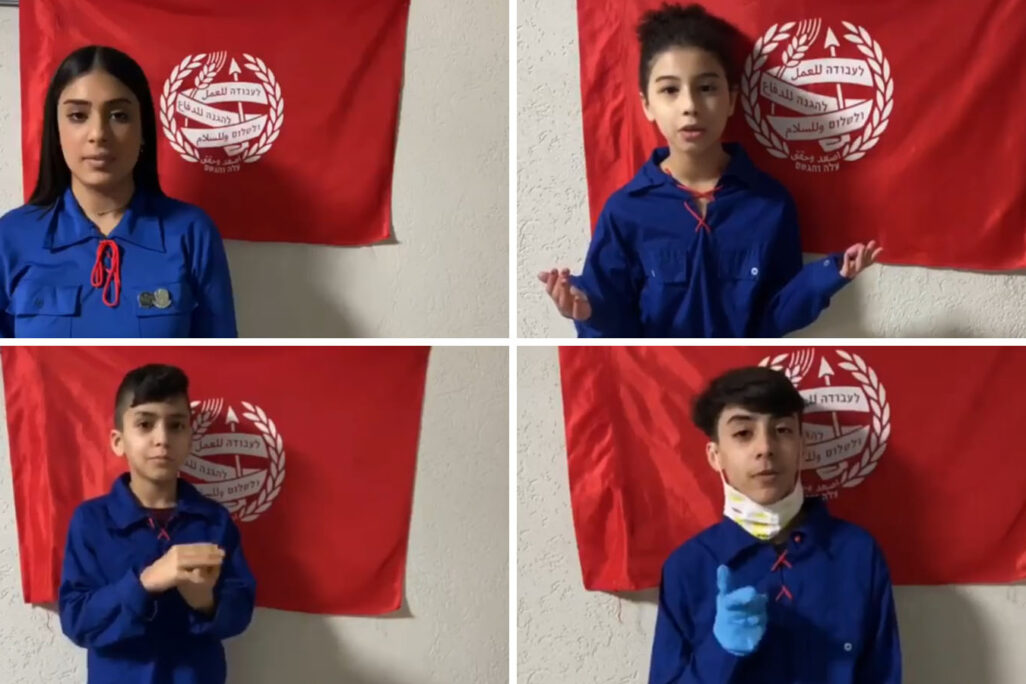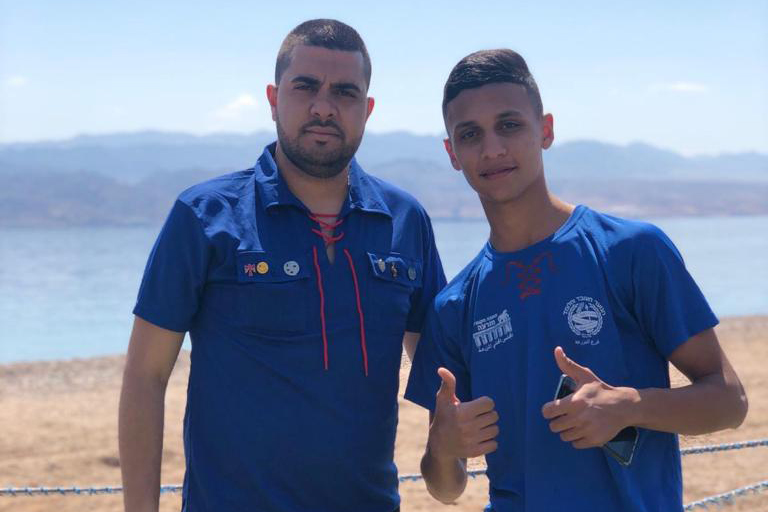
Under normal circumstances, Ken Mazra’a of HaNoar HaOved VeHalomed functions just like any other branch of the youth movement – facilitating games, group discussions between kids and their counselors, and hikes. In the last two weeks, however, due to the coronavirus crisis and their inability to physically gather in groups, activities of the ken, or local chapter of the movement, have moved to the virtual space
“We opened a WhatsApp group to invite the kids to activities and virtual meetings over video chats,” says Mustafa Gadban, 19, who is a youth leader in the ken as part of his sherut leumi (national service for those who do not serve in the IDF). “We speak with kids about corona, about the situation, about their thoughts and feelings. We also play games with them through the app.” The staff of counselors hold meetings via video chat as well.

Mazra’a is an Arab village in Israel’s north, near Nahariya, with a population of around 3,800. The ken of HaNoar HaOved VeHalomed plays a central role in the education of young children and teenagers in the community. In contrast with the chaotic lack of routine and disrupted school system, the connection between the youth and their counselors creates continuity, facilitates conversation about the situation, and encourages responsibility over the community..
Gadban, who is in his second year of sherut leumi, joined through the non-profit Shlomit. He explained that last week, the head counselor called him and proposed the creation of a short film featuring the kids meant for the whole community. The counselors and kids immediately answered the call. Within 24 hours, the clip went online. According to Gadban, the idea really excited the kids and they were happy to take part in the project, to meet and do something about the situation. In order to abide by the rules and not assemble in a large group, the counselors spoke with their kids about the project online, and the kids prepared for filming at home.
During the morning of filming (which took place last week, before the prohibition against leaving one’s home went into effect), the counselors called all of their kids. They invited them to film one by one at the house of the counselors. Gadbad and his friends took on the editing process. The next day, the video was already online. Kids of all ages (10-18) took part in the filming process. In the short film, they explain the symptoms of COVID-19 and call on whomever is experiencing symptoms to seek medical attention. In addition, they explained the rules of conduct in order to prevent further spread of infection.
For Gadban, the reactions of the parents and the community were very moving. He concludes: “The video is the result of collaboration and support between the kids and their parents, the regional supervisor and the head counselor of the ken. I want to thank everyone involved for the support and the hard work. Even now no one is stopping, and everyone is making every effort to create activities and take care of the youth.”






